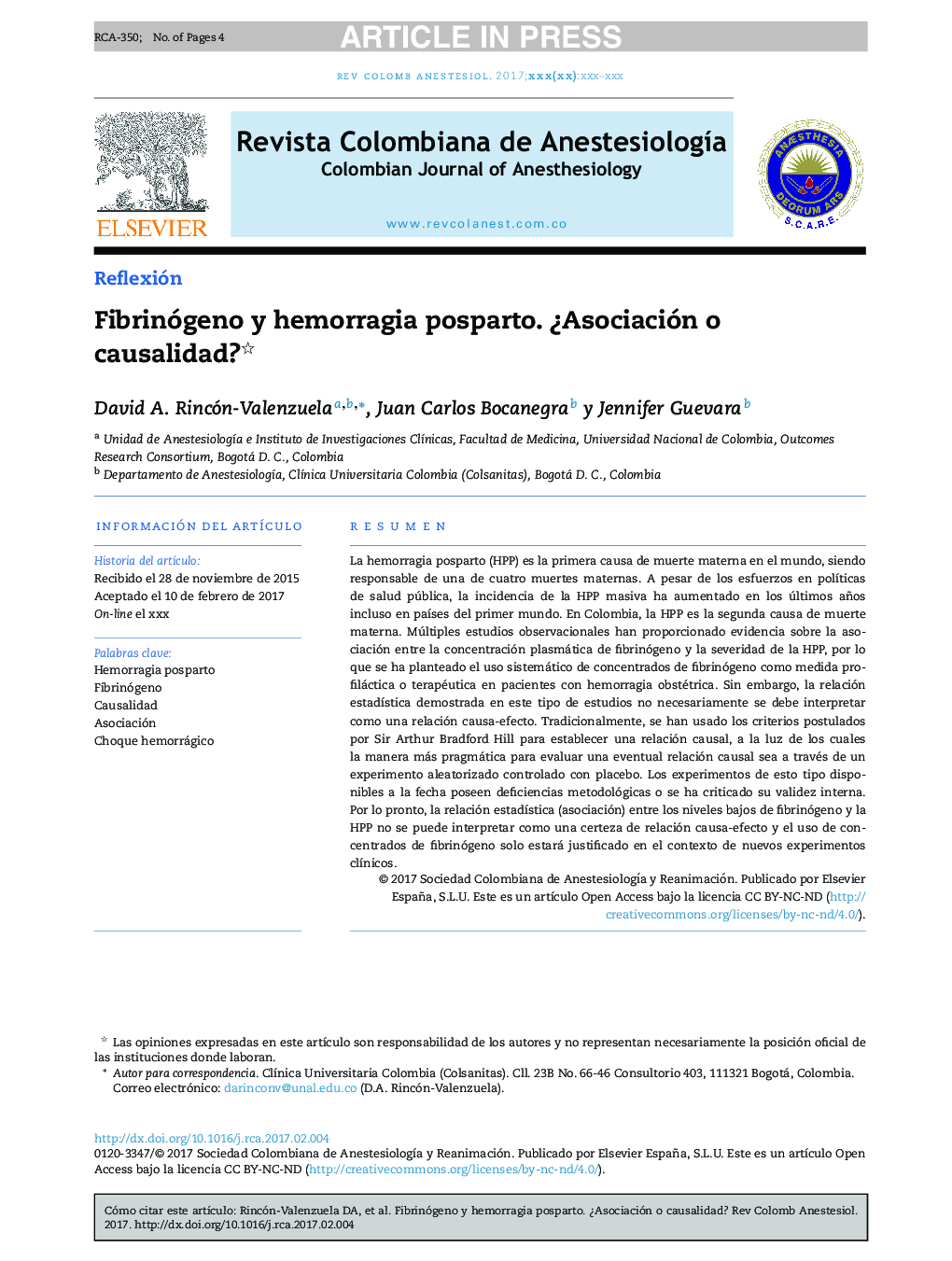| Article ID | Journal | Published Year | Pages | File Type |
|---|---|---|---|---|
| 8621642 | Revista Colombiana de Anestesiología | 2017 | 4 Pages |
Abstract
Postpartum hemorrhage (PPH) is the leading cause of maternal death worldwide, accounting for one in four maternal deaths. Despite efforts in public health policy, the incidence of massive PPH has increased in recent years even in first world countries. In Colombia, PPH is the second leading cause of maternal death. Multiple observational studies have provided evidence about the association between the concentration levels of fibrinogen in blood plasma and the severity of PPH, proposing the systematic use of fibrinogen concentrates as a prophylactic or therapeutic measure in patients with obstetric hemorrhage. However, the statistical relationship demonstrated in such studies should not necessarily be interpreted as a cause-effect relationship. Traditionally, we have used the criteria postulated by Sir Arthur Bradford Hill to establish a causal relationship. Therefore, the most pragmatic way to evaluate a possible causal relationship is through a randomized placebo-controlled experiment. Experiments of this kind available to date have methodological deficiencies or have been criticized for internal validity. As a result, the statistical relationship (association) between low levels of fibrinogen and PPH cannot be certainly interpreted as a cause-effect relationship and the use of fibrinogen concentrates may only be justified in the context of new clinical trials.
Keywords
Related Topics
Health Sciences
Medicine and Dentistry
Anesthesiology and Pain Medicine
Authors
David A. Rincón-Valenzuela, Juan Carlos Bocanegra, Jennifer Guevara,
